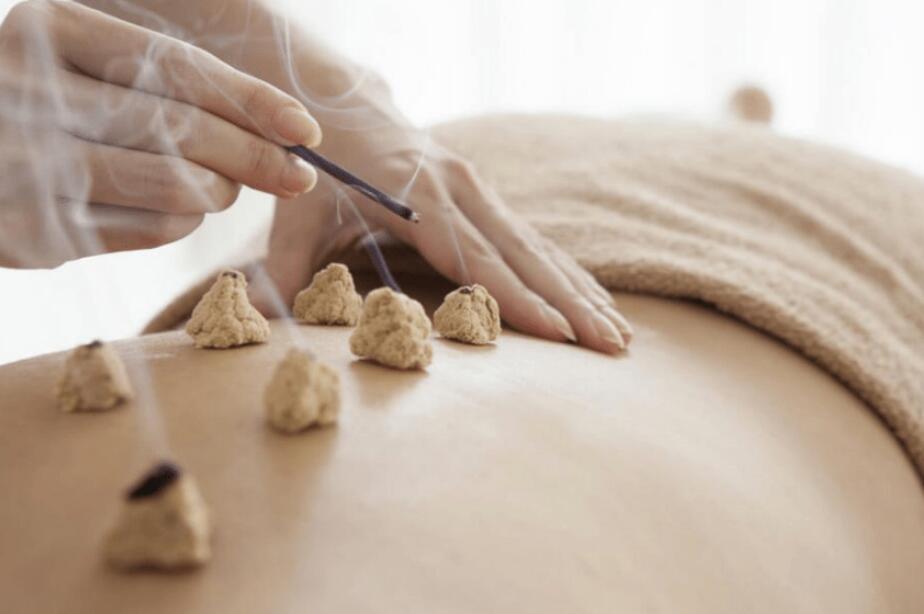
Moxibustion on these acupoints has a miraculous effect on regulating the stomach and intestines!
Modern people are under great work pressure, think too much, and have irregular lifestyles and irregular diets. They eat and drink a lot at the wine table, and eat a lot of meat and drink a lot. It is easy to cause spleen and stomach disharmony, causing indigestion, stomach bloating, stomach discomfort after eating too much, and other discomforts. I believe that this is already a common problem for office workers. Therefore, the trend of stomach problems is becoming younger and younger. From the perspective of traditional Chinese medicine, stomach cold refers to the symptoms of stomach yang deficiency, excessive eating of raw and cold food, or cold evil directly causing yin and cold stagnation in the stomach. Among them, stomach cold caused by stomach yang deficiency is the most common. Stomach yang deficiency is generally caused by congenital deficiency, long-term fatigue, irregular diet, long-term illness, and yang deficiency. As the saying goes, “three points of treatment and seven points of care”, in addition to taking medicine, you can also use the five-point acupoint method to relieve stomach discomfort.
Five-point acupuncture point selection method
Shangwan acupoint
Shangwan acupoint is an acupoint on the Ren meridian, located 5 inches above the navel, also known as Shangguan. Shang means upper part, and Wan means cavity. The name of the acupoint means that the water of the ground in the upper part of the chest and abdomen gathers here. It is located in the stomach, so it has a good conditioning effect on diseases in the stomach.
Moxibustion Shangwan acupoint has good effects of warming the middle and dispersing cold, relieving pain, and treating anorexia, spleen and stomach weakness, and indigestion.
Zhongwan acupoint
Zhongwan acupoint is an acupoint on the Ren meridian, a gastric mu point, located at the midpoint of the line connecting the xiphoid process and the navel. It is the convergence point of 4 meridians, the middle of the human body’s internal organs, and the battleground between the body’s positive energy and disease. At the same time, it is known as the “soul acupoint” of the stomach. This acupoint has the effects of strengthening the spleen and stomach, replenishing the middle and replenishing qi, and can regulate various gastric diseases.
Moxibustion on Zhongwan acupoint has a good effect of warming the middle and replenishing deficiency, harmonizing the spleen and stomach, and has a regulating effect on poor spleen and stomach function, spleen and stomach disharmony, abdominal pain, abdominal distension, constipation, diarrhea and loss of appetite.
Xiawan acupoint
Xiawan acupoint is a Ren meridian acupoint, which is the meeting point of Taiyin and Ren meridian. The name of the acupoint means that the upper part of the Ren meridian flows downward here.
Xiawan acupoint has the functions of strengthening the spleen and stomach, eliminating accumulation and stagnation, and dredging water and dampness. Moxibustion on Xiawan acupoint has a good regulating effect on chronic gastritis, gastric ulcer, noisy stomach, fullness under the heart, acid reflux, heartburn, loss of appetite, indigestion, hyperactive bowel sounds and other diseases.
Liangmen acupoint
Liangmen acupoint belongs to the Stomach Meridian of Foot Yangming. Liang means the horizontal beam of the roof, and Men means the passageway in and out. The name of the acupoint means that the Qi and blood substances of the Stomach Meridian are restrained by this acupoint.
Moxibustion on Liang acupoint can regulate gastritis, gastric or duodenal ulcer, gastroptosis, gastric neurosis, food stagnation, liver qi attacking the stomach, spleen and stomach deficiency and cold, qi stagnation and blood stasis and other gastrointestinal diseases.
Weishu acupoint
Weishu acupoint is located on the foot-sun bladder meridian, which means that the damp and hot water vapor of the stomach is transported from here to the bladder meridian. It can warm the spleen and stomach and adjust the imbalance of spleen and stomach yin and yang.
Moxibustion on Weishu acupoint can regulate epigastric pain, especially epigastric deficiency pain, cold pain and abdominal distension, intestinal rumbling, diarrhea and vomiting.
